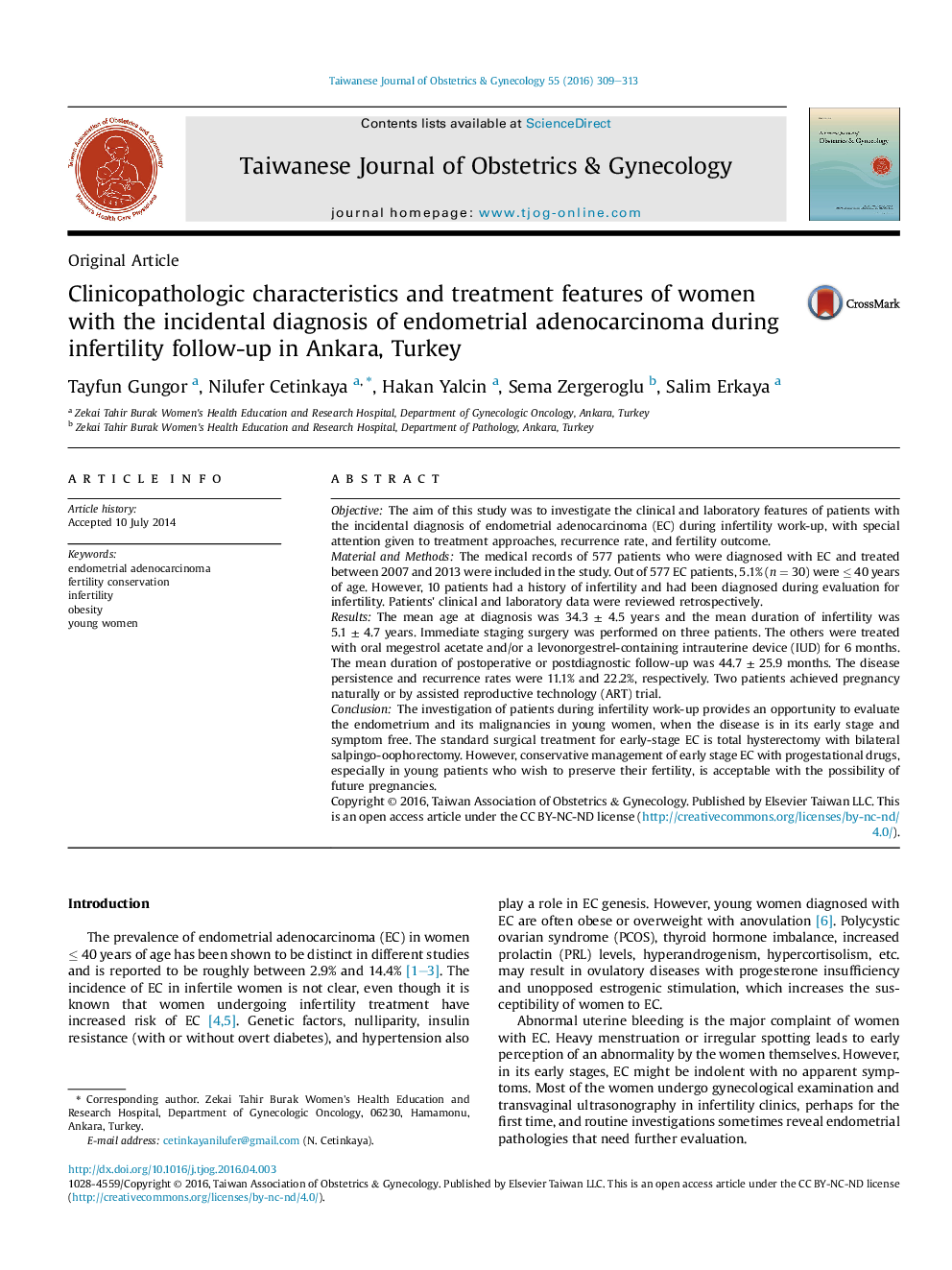| Article ID | Journal | Published Year | Pages | File Type |
|---|---|---|---|---|
| 3975151 | Taiwanese Journal of Obstetrics and Gynecology | 2016 | 5 Pages |
ObjectiveThe aim of this study was to investigate the clinical and laboratory features of patients with the incidental diagnosis of endometrial adenocarcinoma (EC) during infertility work-up, with special attention given to treatment approaches, recurrence rate, and fertility outcome.Material and MethodsThe medical records of 577 patients who were diagnosed with EC and treated between 2007 and 2013 were included in the study. Out of 577 EC patients, 5.1% (n = 30) were ≤ 40 years of age. However, 10 patients had a history of infertility and had been diagnosed during evaluation for infertility. Patients' clinical and laboratory data were reviewed retrospectively.ResultsThe mean age at diagnosis was 34.3 ± 4.5 years and the mean duration of infertility was 5.1 ± 4.7 years. Immediate staging surgery was performed on three patients. The others were treated with oral megestrol acetate and/or a levonorgestrel-containing intrauterine device (IUD) for 6 months. The mean duration of postoperative or postdiagnostic follow-up was 44.7 ± 25.9 months. The disease persistence and recurrence rates were 11.1% and 22.2%, respectively. Two patients achieved pregnancy naturally or by assisted reproductive technology (ART) trial.ConclusionThe investigation of patients during infertility work-up provides an opportunity to evaluate the endometrium and its malignancies in young women, when the disease is in its early stage and symptom free. The standard surgical treatment for early-stage EC is total hysterectomy with bilateral salpingo-oophorectomy. However, conservative management of early stage EC with progestational drugs, especially in young patients who wish to preserve their fertility, is acceptable with the possibility of future pregnancies.
